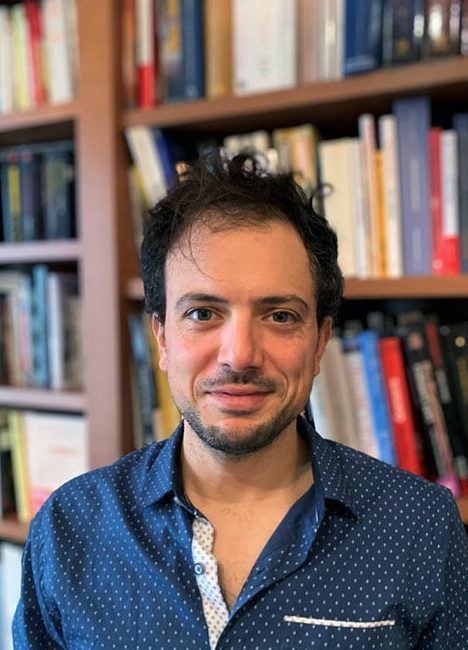

Sep 2025

Abstract:
Unbiased forward genetics screens have repeatedly rewritten our understanding of host–virus biology. Having witnessed the power of genetic screens in model organisms during my PhD, exemplified by the Toll pathway in Drosophila, I set out throughout the years to apply next-generation genetic screening in human cells to interrogate RNA virus infection at large-scale. In this seminar, I will first show how Haploid and CRISPR-based screens resolved host dependencies of flaviviruses (dengue, Zika, hepatitis C), revealing endoplasmic reticulum–related pathways and complexes—including protein glycosylation and quality-control machineries such as the OST complex and ER-associated degradation—as central viral enablers and candidate therapeutic targets. I will then pivot to RNA-centric proteomics to illuminate the “dark matter” of viral RNA–host protein interactions. Using CHIRP-MS and complementary proteomic approaches, we systematically charted the RNA-binding protein landscape that engages dengue and Zika genomes during infection, identifying factors such as Vigilin among broader ribonucleoprotein assemblies that choreograph replication, translation, and RNA stability. Together, these orthogonal discovery engines—genome-scale genetics and RNA-focused proteomics—offer a multi-layered view of the viral life cycle. Finally, I will introduce a newer frontier from my lab: circular RNA satellite viruses (deltaviruses). Leveraging advanced RNA-centric imaging and structural methods (AFM, STED, Airyscan, Cryo-EM), we are uncovering how these enigmatic agents exploit “viral Trojan horse” strategies to spread, raising fundamental questions about helper–satellite co-evolution, host range, and pathogenesis. I will close with some perspectives in RNA virus research, and how insights from unbiased approaches, can be translated into antiviral strategies and pandemic preparedness.
Bio:
Karim Majzoub is a molecular virologist whose career spans several continents and bridges engineering, immunology, virology and RNA biology. Karim trained as a biotechnology engineer at the European School of Biotechnology (ESBS, Strasbourg, Freiburg, Karlsruhe and Basel), a trinational, trilingual program that immersed him in French, Swiss, and German scientific cultures. During his engineering thesis diploma in 2008, he worked in Los Angeles in John Rossi’s laboratory on RNA interference and viral infections—an experience that sharpened his focus on RNA viruses. Back in France in 2009, Karim pursued a PhD in molecular virology and immunology with Jean-Luc Imler and Nobel Laureate Jules Hoffmann. His doctoral work led to several high-impact papers, including a publication in Cell and several awards. Seeking genome-scale tools to study viruses in human cells, he joined Jan Carette’s lab as a postdoctoral fellow, at Stanford University (2014–2019), where he applied haploid and CRISPR screens to uncover host factors for flaviviruses—including dengue, Zika, and hepatitis C virus—resulting in more than ten papers in journal such as Nature, Nature Microbiology, and Nature Methods. Since 2021, Karim has headed the Laboratory of RNA Viruses and Host Factors at the Institute of Molecular Genetics of Montpellier (IGMM, CNRS). His ~8-10 member team investigates the molecular strategies of zoonotic RNA viruses, with a particular emphasis on circular parasitic RNAs (deltaviruses) and medically important arboviruses. His research program is supported by prestigious funding, including an European Research Council- ERC Starting Grant, an ATIP-Avenir award, and multiple national french ANR grants.